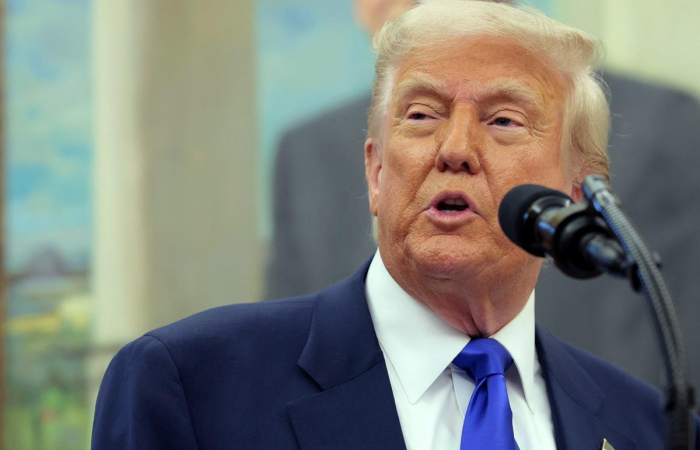In this op-ed Will Murray warns us not to fall for PR traps or stunts but to be discerning readers, especially in this time of crisis.
There is an old PR trope that there are 'good days for bad news' - periods when the news cycle is pre-occupied, thus unpopular or unsavoury announcements will face limited publicity and media scrutiny. As the severity of the COVID-19 virus becomes ever more apparent and citizens across the globe prepare for weeks - if not months - of isolation and preventative measures, one fears that this very real crisis might overshadow other very real issues.
It's not radical to accuse people of seeking out opportunities to air their dirty laundry. Every PR executive knows that the timing of an announcement is in many ways just as important as the content. Just as a tech company would be unwise to announce its pioneering new product during a pandemic due to the limited news coverage it could expect; it would be an 'ideal' time for them to admit to flaws or wrongdoing. Crises take hold of the media and scandalous information released at the 'right' time can appear comparatively insignificant to both readers and journalists. If covered at all, it can quickly be relegated to the margins of news websites, with relatively little follow up, and priority given elsewhere.
For example, some may remember a leaked memo to the UK Labour Transport Secretary from his special advisor Jo Moore in 2001. Written during the attacks on the Twin Towers, she explicitly highlighted that it was 'a very good day to get out anything we want to bury,' before hinting towards the announcement of a Government U-turn on councillor pension rights [1]. It's worth noting that scandal once again surrounded Moore less than a year later, when she was accused of scheduling the publishing of a controversial report for the day of Princess Margaret's funeral [2]. However controversial it may seem, such practices are commonplace in politics, especially in a day and age where leaders seem willing to jettison integrity, lie, conceal and distort the truth to fit their agendas.
The British Prime Minister, Boris Johnson, has hardly been subtle in his admiration of the diversionary 'dead-cat' strategy, attributed to his friend and long-time Conservative Party PR man, Lynton Crosby. In a 2013, in his column for The Telegraph, Johnson wrote that when losing an argument, "The facts are overwhelmingly against you, and the more people focus on the reality the worse it is for you and your case". In this situation, he suggests the best thing one can do is throw a metaphorical 'dead cat' onto the table - something, possibly unrelated to the argument, that is too absurd to ignore. Observers will turn their attention towards the dead cat, away from the discussion at hand [3].
Whilst no one is suggesting COVID-19 to be a 'dead cat' - the situation is undeniably serious and must be considered so - it has dominated the international media cycle now for two weeks and is sure to take centre stage for the foreseeable future. In this age of populism, such an opportunity to air dirty laundry may seem a little bit too attractive for politicians.
Across the world's many fragile conflict areas, there is the potential for even more cause for concern. For instance, just this week, Israeli politicians put forth a private members bill, which would apply immediate Israeli sovereignty over the West Bank [4]. Whilst the Palestinian Authority's Foreign Ministry have called on the international community to block the bill, there is no doubt that the story is receiving less airtime than it might do otherwise. Decisions made during major crises may receive less coverage, but their repercussions are guaranteed to be just as serious.
On top of the understandable priority given to COVID-19 in the news, there is the ongoing concern of 'fake news', which threatens to distort the little information we can absorb. On Wednesday (18/03) a document by the European Union accused the Russian media of a significant, targeted, virus-related disinformation campaign in order to destabilise the West through sowing seeds of distrust and "aggravating" the public health crisis [5]. EUvsDisinfo, the flagship 'fake news' monitoring service by the European External Action Service, has also shown the spread of disinformation by various other actors, and - for instance - their fear in the Western Balkans that the virus will be "weaponised in ongoing electoral debates and to discredit opponents with conspiracy theories" [6]. Not only does such behaviour compound the already-oversaturated media cycle, but it makes the job of analysing the news even more difficult - whether looking at the virus or keeping on top of general affairs.
Using crisis as a distraction is not limited to a single sector - if anything, it is more common in business than it is in politics, ranging from embarrassing admissions to era-defining political plays taken away from the due scrutiny of the public eye. Despite the difficulties of this turbulent period, now more than ever, as journalists and observers, we have a responsibility to think critically and not to fall for PR traps or stunts, that in normal times would be unacceptable, but that in these difficult days of global crisis are simply outrageous.
source: Will Murray is projects officer and co-ordinator at LINKS Europe.
References:
[1] A. Sparrow, The Telegraph, 10/10/01 'Sept 11: a good day to bury bad news' https://www.telegraph.co.uk/news/uknews/1358985/Sept-11-a-good-day-to-bury-bad-news.html
[2] P. Wintour, The Guardian, 14/02/02 'Department denies new bid to bury bad news' https://www.theguardian.com/society/2002/feb/14/localgovernment1
[3] B. Johnson, The Telegraph, 03/03/13, 'This cap on bankers' bonuses is like a dead cat - pure distraction' https://www.telegraph.co.uk/news/worldnews/europe/eu/9906445/This-cap-on-bankers-bonuses-is-like-a-dead-cat-pure-distraction.html
[4] T. Lazaroff, Jerusalem Post, 18/03/20 Likud politicians file Knesset bill to annex West Bank settlements now https://www.jpost.com/Israel-News/Likud-politicians-file-Knesset-bill-to-annex-West-Bank-settlements-now-621458
[5] J. Rankin, The Guardian, 18/03/20 'Russian media 'spreading Covid-19 disinformation'' https://www.theguardian.com/world/2020/mar/18/russian-media-spreading-covid-19-disinformation
[6] EUvsDisinfo, 19/03/20 'EEAS Special Report: Disinformation On The Coronavirus - Short Assessment Of The Information Environment'






